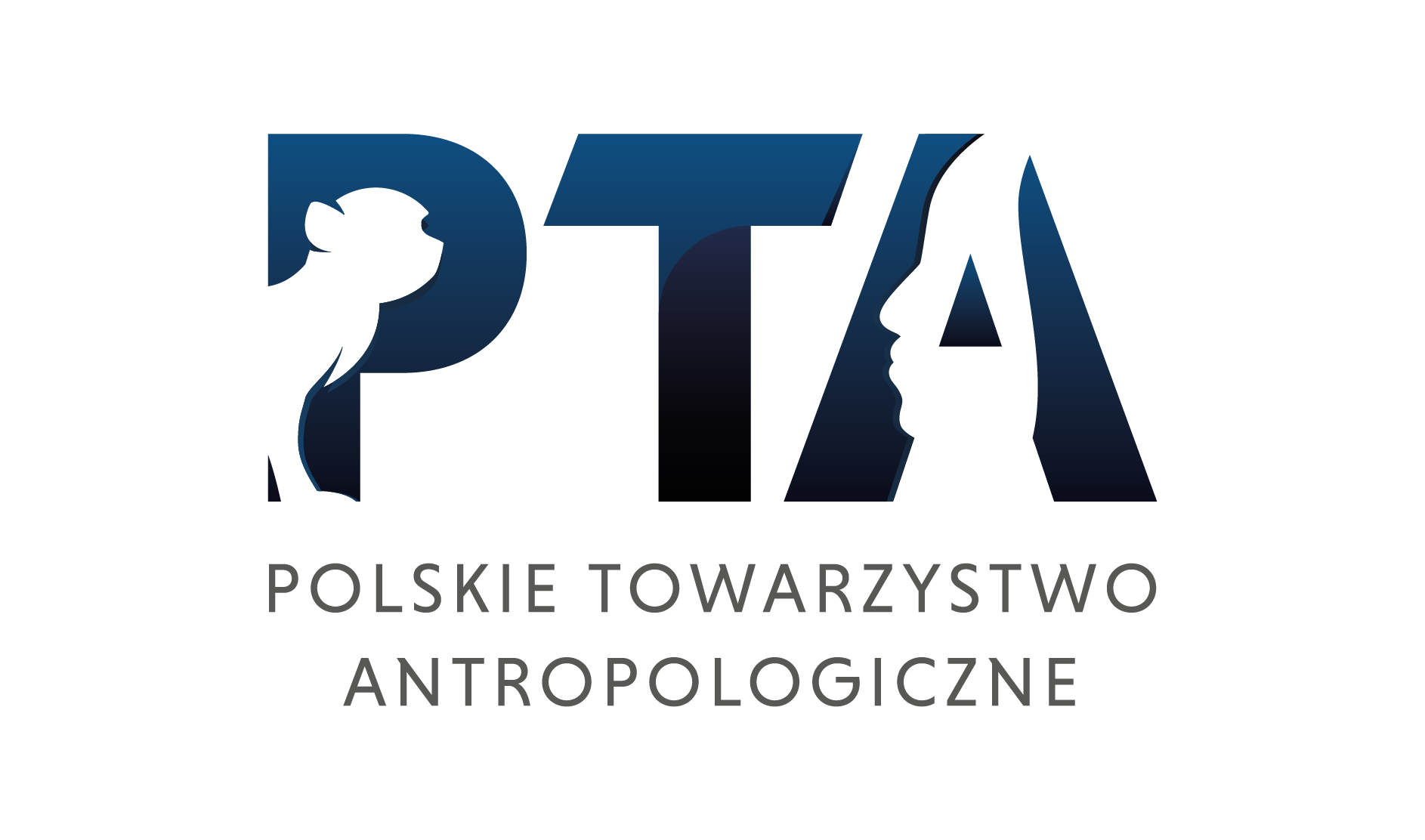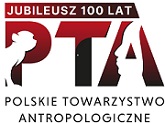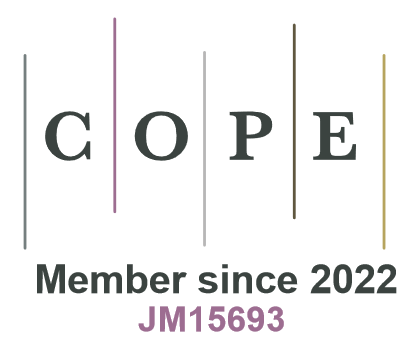The concept of sociobiology as a programme for investigations of human and animal social behaviour
DOI:
https://doi.org/10.18778/1898-6773.50.1.19Abstract
The major aim of the present paper is an attempt at a general summarizing characteristics-of results obtained hitherto by sociobiology in the realm of studies upon social behaviour of man and animals. More specifically, the author deals with concepts of ethology, general questions of 'sociobiology, a problem of optimum strategy, basic questions of human sociobiology and meritoric and methodological status of the discipline. Formulation of the theory of evolution enabled scientific approach to animal behaviour. It had lead in the 1930-s to formation of ethology, a discipline investigating behaviour from the biological viewpoint. It gives much attention to animal social behaviour. In order to express interrelations between members of a group of individuals of the same species a notion of organization or social system is used in ethology. Usually social organization is looked upon as an -adaptation to a specific type of environment. Beginnings of sociobiology are related to formulation of the general theory of social behaviour by W. D. Hamilton. The central notion for this theory is a concept of inclusive fitness. It includes number of offspring of a given individual as well as the reproductive success of its relatives (a product of their offspring number and degree of kinship). A social behaviour is adaptive only when it increases inclusive fitness. This statement is the core of sociobiology understood as a systematic study upon biological basis for all types of human as well as animal behaviour. Its formulation dates back to the mid 1970-s and is contributed to E. O. Wilson. Present studies are concerned mainly with behaviour of insects, though recently a number of sociobiological analyses of mammalian and human bshaviour increases. In order to explain what is an optimum strategy of behaviour sociobiology makes use of a notion of stable strategy of individual behaviour in an evolutionary perspective. It includes mixed ratio of various individual behavioural strategies favourable in comparison with alternative behaviours maximizing general inclusive fitness of an individual. Major controversy is related to human sociobiology. Sociobiologists propose to include social sciences into evolutionary biology viewed as a basis for all the humanities. They use for their purposes a host of genetic, evolutionary and ecological data and aim to put in doubt a concept of distinctive place occupied by cultural evolution of man. Sociobiology is related to previous results of biological sciences, but differs considerably from traditional ethology. In sociobiology the basic unit of analysis is an individual together with a small group of its relatives, while in ethology the whole species is a primary object of considerations. The aim of sociobiology is not only to compare behaviour of various species (as in ethology) but also to attempt at elucidation of general laws concerning biology and evolution of social behaviour (including human behaviour). Ethology is concentrated upon studying neurological and physiological mechanisms of behaviour — deals with so-called direct bases of behaviour. To the contrary sociobiology attempis to find ultimate purposes of social-behaviour aimed at maximization of inclusive fitness. Despite a number of differences between the two disciplines one observes recently a process of merging basic notions and methods of investigation. Sociobiology nowadays constitutes a challenge for behaviouristic theories claiming on unlimited plasticity of behaviour and overlooking phylogenetic determinants of behaviour.
Downloads
References
Alexander R. D., 1974, The Evolution of Social Behavior, Annual Review of Ecology and Systematics, 5.
View in Google Scholar
DOI: https://doi.org/10.1146/annurev.es.05.110174.001545
Alexander R. D., 1975, The Search for a General Theory of Behavior, Behavioral Science, 20.
View in Google Scholar
DOI: https://doi.org/10.1002/bs.3830200202
Allen E., 1977, Sociobiology: A New Biological Determinism, [w:] Biology as a Social Weapon, Minneapolis.
View in Google Scholar
Ardrey R., 1961, African Genesis, New York.
View in Google Scholar
Ardrey R., 1966, The Territorial Imperativ, New York.
View in Google Scholar
Ardrey R., 1970, The Social Contract, New York.
View in Google Scholar
Barash D. P., 1977, Sociobiology and Behavior, London.
View in Google Scholar
Berghe L. van den, 1977, Response to Lee Ellis’ The Decline and Fall of Sociology, Americam Sociologist, 12.
View in Google Scholar
Bogdany F., 1980, Soziobiołogie — Möglichkeiten und Grenzen der neuen: Synthesis, Kólner Zeitschrift für Soziologie, 32.
View in Google Scholar
Clutton-Brock T. H. and P. H. Harvey, 1977, Primate Ecology and Social Organization Journal of Zoology, 183.
View in Google Scholar
DOI: https://doi.org/10.1111/j.1469-7998.1977.tb04171.x
Dawkins K., 19/8, Das egoistische Gen, Berlin-Hamburg.
View in Google Scholar
Dobzhansky T., 1968, Dziedziczność a natura człowieka, Warszawa.
View in Google Scholar
Eibl-Eibesfeldt I., 1970, Liebe und Hass, München.
View in Google Scholar
Eibl-Eibesfeldt IL, 1972, Grundriss der vergleichenden Verhaltensforschung, München.
View in Google Scholar
Eibl-Eibesfeldt I., 1975, Krieg und Frieden aus der Sicht der Verhaltensforschung, München.
View in Google Scholar
Ellis L., 1977, The Decline and Fall of Sociology. 1975-2000, American Sociologist, 12.
View in Google Scholar
Ewer R. F., 1976, Ethologie der Säugetiere, Berlin-Hamburg.
View in Google Scholar
Francis E. K., 1981, Evolutionstheorie und der Sozialdarwinismus, Kôlner Zeitschrift für Soziologie, 33.
View in Google Scholar
Freye H. A., 1980, Spur der Gene, Leipzig.
View in Google Scholar
Giesen B., Ch. Lau, 1981, Zur Anwendung Darwinistischer Erklärungstrategien in der Soziologie, Kölner Zeitschrift für Soziologie, 33.
View in Google Scholar
Haartman L. von, 1961, Charles Darwin and Ethology, Commentationes Biologicae (Helsinki), 22.
View in Google Scholar
Hamilton W. D., 1963, The Evolution of Altruistic Behavior, American Naturalist, 97.
View in Google Scholar
DOI: https://doi.org/10.1086/497114
Hamilton W. D., 1964, The Genetical Evolution of Social Behavior, Journal of Theoretical Biology, 7.
View in Google Scholar
DOI: https://doi.org/10.1016/0022-5193(64)90038-4
Hamilton, W. D., 1970, Selfish and Spiteful Behavior in an Evolutionary Model, Nature, 228.
View in Google Scholar
DOI: https://doi.org/10.1038/2281218a0
Hamilton W. D., 1972, Altruism and Related Phenomena, Annual Review of Ecology and Systematics, 3.
View in Google Scholar
DOI: https://doi.org/10.1146/annurev.es.03.110172.001205
Hamilton W. D., 1975, Innate Social Attitudes of Man: An Approach from Evolutionary Genetics, [w:] R. Fox (ed.), Biosocial Anthropology, New York.
View in Google Scholar
Henderichs H., 1978, Die Soziale Organisation von Säugetierpopulation, Säugetierkundliche-Mitteilungen, 26.
View in Google Scholar
Hoffman A., 1983, Socjologiczne uzurpacje, Przegląd Techniczny, 6, 7, 8.
View in Google Scholar
Homans C. A., 1977, A Sociologist’s Reaction, American Sociologist, 12.
View in Google Scholar
Immelmann K., 1979, Einfiihrung in die Verhaltensforschung, Berlin-Hamburg.
View in Google Scholar
Jaynes J., 1969, The Historical Origin of ,,Ethology” and ,,Comparative Psychology”, Animal Behaviour, 17.
View in Google Scholar
DOI: https://doi.org/10.1016/S0003-3472(69)80001-1
Klopfer P. H., 1974, An Introduction to Animal Behavior: Ethology's First Century, Englewood. Cliffs N.J.
View in Google Scholar
Kośmicki E., 1980, Etologiczna koncepcja wyjaśniania zachowań zwierzęcych i ludzkich, Przegląd Antropologiczny, 46.
View in Google Scholar
DOI: https://doi.org/10.18778/1898-6773.46.2.17
Kośmicki E., 1982, Działania racjonalne i racjomorficzne. Próba porównania działań ludzkich: i zwierzęcych, Poznańskie Studia z Filozofii Nauki, 7.
View in Google Scholar
Kummer H., 1975, Sozialverhalten der Primaten, Berlin-Heidelberg-New York.
View in Google Scholar
DOI: https://doi.org/10.1007/978-3-642-66078-8
Kurland J. A., 1977, Kin Selection in the Japanese Monkey, Basel.
View in Google Scholar
Lensky G., 1977, Sociology and Sociobiology: An Alternative View, American Sociologist, 12.
View in Google Scholar
Lorenz K., 1971, Phylogenetische Anpassung und adaptive Modifikation des. Verhaltens, [w:] K. Lorenz, Uber tierisches und menschliches Verhalten, Bd. II, München.
View in Google Scholar
Lorenz K., 1975, Tak zwane zło, Warszawa.
View in Google Scholar
Lorenz K., 1977, Odwrotna strona zwierciadła. Próba historii naturalnej ludzkiego poznania, Warszawa.
View in Google Scholar
Lorenz K., 1978, Vergleichende Verhaltensforschung. Grundlagen der Ethologie, Wien-New York.
View in Google Scholar
DOI: https://doi.org/10.1007/978-3-7091-3097-1
MacLean P. D., 1973, A Triune Concept of the Brain and Behaviour, {w:] T. J. Boag and D. Campbell (eds.), The Clarence M. Hincks Memorial Lectures, Toronto-Buffallo.
View in Google Scholar
DOI: https://doi.org/10.3138/9781487576752
Manning A., 1976, Wstęp do etologii zwierząt, Warszawa.
View in Google Scholar
Maynard Smith J., 1974, The Theory of Games and Evolution of Animal Conflicts, Journal of Theoretical Biology, 47.
View in Google Scholar
DOI: https://doi.org/10.1016/0022-5193(74)90110-6
Maynard Smith J. and G. R. Price, 1973, The Logic of Animal Conflicts, Nature, 246.
View in Google Scholar
DOI: https://doi.org/10.1038/246015a0
Morris D., 1969, The Human — Zoo, New York.
View in Google Scholar
Morris D., 1974, Naga małpa, Warszawa.
View in Google Scholar
Parsons P. A., 1974, The Behavioral Phenotype in Mice, American Naturalist, 108.
View in Google Scholar
DOI: https://doi.org/10.1086/282915
Perry R. J., 1981, Nauka w służbie ideologii, Prezentacje, 5.
View in Google Scholar
Rieger R., A. Michaelis, M. M. Green, 1974, Słownik terminów genetycznych, Warszawa.
View in Google Scholar
Ruse M., 1979, Sociobiology — Sense or Nonsense? Dordrecht-Boston-London.
View in Google Scholar
DOI: https://doi.org/10.1007/978-94-011-7560-9
Sahlins M., 1980, Wykorzystywanie i nadużywanie biologii, Prezentacje, 10.
View in Google Scholar
Satdinowa N., 1982, Co determinuje człowieka — geny czy kultura? Prezentacje, 5.
View in Google Scholar
Serafiński W., 1981, Kontrowersje wokół socjobiologii, Kosmos, 3.
View in Google Scholar
Sperlich D., 1977; Genetyka populacji, Warszawa.
View in Google Scholar
Tembrock G. (ed.), 1978, Wórterbiicher der Biologie, Jena.
View in Google Scholar
Tietzel M., 1983, Ökonomie und Soziobiclogie oder: Wer kann was von wem lernen?, Zeitschrift für Wirtschafts — und Sozialwissenschaften, 2
View in Google Scholar
DOI: https://doi.org/10.3790/schm.103.2.107
Tinbergen N., 1976, Badania nad instynktem, Warszawa.
View in Google Scholar
Trivers R. L., 1971, The Evolution of Reciprocal Altruism, Quarterly Review of Biology, 46.
View in Google Scholar
DOI: https://doi.org/10.1086/406755
Trivers R. L., 1974, Parent — offspring Conflict, American Zoologist, 14.
View in Google Scholar
DOI: https://doi.org/10.1093/icb/14.1.249
Trivers R. L., H. Hare, 1976, Haplodiploidy and the Evolution of the Social Insects, Science, 191.
View in Google Scholar
DOI: https://doi.org/10.1126/science.1108197
Ullrich W., 1973, Zoopsychologia, Warszawa.
View in Google Scholar
Urbanek A., 1980, Na granicy biologii i socjologii, Problemy, 11.
View in Google Scholar
Wickler W., 1970, Stammesgeschichte und Ritualisierung. Zur Entstehung tierischer und MENSCH cher Verhaltensmuster, München.
View in Google Scholar
Wickler W., U. Seibt, 1977, Das Prinzip Eigennutz, Hamburg.
View in Google Scholar
Wilson E. O., 1975, Sociobiology. The New Synthesis, Cambridge (Mass.)-London.
View in Google Scholar
Wilson E. O., 1977, Foreword, [w:] D. P. Barash, Sociobiology and Behavior, London.
View in Google Scholar
Wilson E. O., 1978, On Human Nature, Cambridge (Mass.)-London.
View in Google Scholar
Wilson E. O., 1979, Społeczeństwa owadów, Warszawa.
View in Google Scholar
Wilson E. O., 1980, O naturze ludzkiej, Prezentacje, 10.
View in Google Scholar
Ziff P., 1982, Sztuka a socjobiologia, Prezentacje, 5.
View in Google Scholar
Downloads
Published
How to Cite
Issue
Section
License

This work is licensed under a Creative Commons Attribution-NonCommercial-NoDerivatives 4.0 International License.








